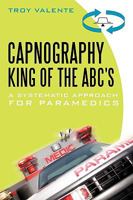Cameras for Kids: Fun and Inexpensive Projects for the Little Photographer
Cameras for kids is a fun filled book full of projects for young children. The projects are fun, simple and inexpensive to create. The book was made to stimulate art and creativity at an early age. Most of the supplies can be picked up a places such as the dollar store. Kids do not need computer knowledge as long as parents can print the photos for the projects. Quite possible the best book for teaching children digital photography Web support for teachers, parents, and children is also available for this book at www.camerasforkids.info * Children can learn about animals, science, and nature, too. This description may be from another edition of this product.
Format:Paperback
Language:English
ISBN:1449502350
ISBN13:9781449502355
Release Date:August 2009
Publisher:Createspace Independent Publishing Platform
Length:74 Pages
Weight:0.37 lbs.
Dimensions:0.2" x 8.0" x 10.0"
You Might Also Enjoy
Customer Reviews
0 customer rating | 0 review
There are currently no reviews. Be the first to review this work.







































